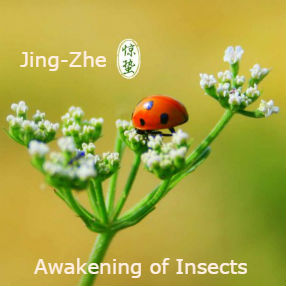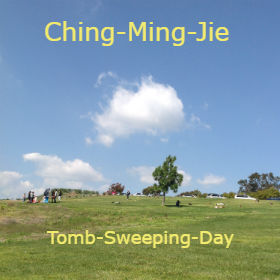Jing-zhe (Globe Language) (noun) 惊蛰 (Chinese) 3rd solar term (Awakened hibernation), (awakening of insects), literally in Chinese jing 惊 = shock, zhe 蛰 = hibernation.
Example:
The word “Jing-zhe” 惊蛰 means the awakening of hibernating insects. Traditional Chinese folklore says that during Jingzhe, thunderstorms will wake the hibernating insects, which implies that the weather is getting warmer.
In ancient Chinese calendar also known as “agriculture calendar”, Jing-Zhe is one of the 24 Chinese solar terms (节气) which later spread to many Asian countries.Jing-zhe is the 3rd term and the third intercalating month (initial) of the 24 solar terms. Jing-zhe begins when the Sun reaches the celestial longitude of 345° and ends when it reaches the longitude of 360°. More often, Jing-zhe refers to the day when the Sun is exactly at a celestial longitude of 345°. In the Gregorian calendar, Jing-zhe usually begins around March 5 and ends around March 20.
In ancient China, Jing-zhe was divided into three periods : “At first period 桃始华; peach trees start to blossoming; second period 仓庚鸣; yellow warblers chirping; third period 鹰化为鸠; seeing yellow warblers instead of eagles”. During Jing-zhe, 龴three periods are also represented by three flowers: “first period is represented by peach blossoms, second period is apricot flowers, and the third is roses.”


